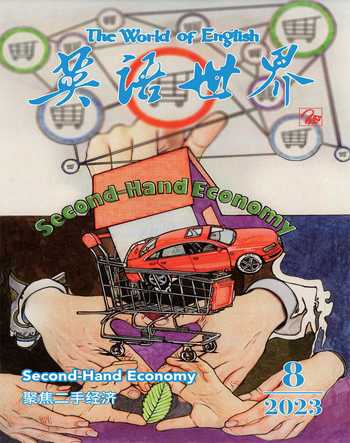Connect with Empathy, But Lead with Compassion凭同理心相联,以同情心领军
2023-08-21拉斯穆斯·霍高等
拉斯穆斯·霍高等
For close to two years, leaders have been thrust into the role of Counselor in Chief, helping teams recover from the grief and loss of the pandemic, buoying1 the declining mental health of their employees, being sensitive to peoples anxieties and often publicly sharing their own vulnerabilities along the way. In short, they have been shouldering a big emotional burden.
在接近两年的时间里,领导们被迫扮演起了首席顾问的角色。他们帮助团队从流行病带来的悲痛及其造成的损失中恢复过来,提升员工们日渐减退的心理健康,体谅他们的烦恼,并且在这期间不时公开谈论自己的脆弱。总之,他们一直肩负着情绪的重担。
Of course, this kind of empathy is important for good leadership. But too much of it can be a problem, weighing you down.
这种同理心对于优秀的领导力来说当然是重要的,但过度了就会成为问题,让你不堪重负。
Instead of carrying that burden of empathy, you can learn to experience the uplifted2 experience of compassion. This is a massive shift in how leaders engage with their teams, a shift that greatly benefits all sides.
与其背负同理心负担,倒不如学会感受振奋的同情体验。这是领导与团队互动方式的重大转变,将极大地造福所有人。
Empathy and compassion: whats the difference?
同理心与同情心:区别在哪里?
The words “empathy” and “compassion,” as well as “sympathy,” are sometimes used interchangeably. They all represent positive, altruistic traits, but they dont refer to the exact same experience. It is helpful to consider the two distinct qualities of compassion: understanding what another is feeling, and the willingness to act to alleviate3 suffering for another.
“同理”“同情”和“憐悯”这三个词在某些情况下是通用的。它们都代表积极、利他的特质,但是并不指代完全相同的体验。不妨想一想同情心的两个显著特质:理解对方的感受,愿意采取行动减轻对方的痛苦。
When we experience pity, we have little willingness to act and little understanding of anothers experience. We simply feel sorry for them. When we experience sympathy, there is a small increase in our willingness to help and our understanding of the other. We feel for the other person.
当我们感受到遗憾的时候,我们并没有多少行动的意愿,也并不能完全体会对方的经历。我们仅仅为他们感到惋惜。当我们感受到怜悯的时候,我们想要帮助对方的意愿会有小小的上升,我们也更能理解对方。我们设身处地地为对方考虑。
With empathy, we have a close, visceral understanding of the other persons experience. We feel with the person. We literally take on the emotions of the other person and make those feelings our own. Though a noble thing to do, it does not necessarily help the other person, except for possibly making them feel less lonely in their experience.
而同理心是指我们深切并发自肺腑地理解对方的体验,和对方感同身受。我们实实在在地承担起对方的情绪并将之内化成自己的情绪。虽然这么做非常高尚,但除了有可能帮助对方减轻当前处境下的孤独感外,并不一定能够切实地帮到对方。
Compassion occurs when we take a step away from empathy and ask ourselves what we can do to support the person who is suffering. In this way, compassion is an intention versus an emotion.
当我们避免产生同理心,自问能做些什么去鼓励遇到困难的员工,同情心就开始发挥作用了。从这个意义上来说,同情心是一种意图而非情绪。
Why does this matter?
为什么这很重要?
Paul Polman, former CEO of Unilever, puts it this way: “If I led with empathy, I would never be able to make a single decision. Why? Because with empathy, I mirror the emotions of others, which makes it impossible to consider the greater good.”
联合利华的前首席执行官保罗·波尔曼是这样描述的:“如果我用同理心领导团队,我就绝对无法做出哪怕一个决定。为什么?因为如果被同理心主导,我就成了映射他人情绪的一面镜子,再也不可能顾全大局。”
As leaders, empathy may cloud our judgment, encourage bias, and make us less effective at making wise decisions. However, it should not be completely avoided. A leader without empathy is like an engine without a spark plug4—it simply wont engage. Empathy is essential for connection and then we can leverage5 the spark to lead with compassion.
对于领导来说,同理心会影响判断、助长偏见,还会妨碍有效地做出明智的决定。然而,不应彻底将其拒之门外。缺乏同理心的领导好比缺少火花塞的发动机——根本发动不起来。同理心对于建立人与人之间的关系是必不可少的,在此之后我们就可以借助燃起的火花,怀着同情心领导团队。
Avoiding the empathy trap—and leading with compassion
避开同理心陷阱——以同情心领导团队
Overcoming an empathetic hijack is a critical skill for any leader. In mastering this skill, you must remember that shifting away from empathy does not make you less human or less kind. Rather, it makes you better able to support people during difficult times. Here are four key strategies for using empathy as a catalyst6 for leading with more compassion.
对于任何一个领导来说,避免被同理心绑架都是一项重要的技能。在学习掌握此项技能的过程中,你必须牢记:不以同理心论事并不意味着你不够人性或不够友善。正相反,它让你更能帮人渡过难关。这里列举四个关键的策略,教你在以同情心领导团队的时候,如何把同理心作为催化剂。
Take a mental and emotional step away.
在精神和情绪层面,后退一步。
To avoid getting caught in an empathetic hijack when you are with someone who is suffering, try to take a mental and emotional step away. Step out of the emotional space to get a clearer perspective of the situation and the person. Remember you are not stepping away from the person. Instead, you are stepping away from the problem so you can help solve it.
在与遭遇困境的员工共处时,为了避免被同理心绑架,试着在精神和情绪层面后退一步。超越情绪的桎梏,用更清晰的视角去看待面临的人和事。记住,你并没有从遇到困难的员工身边漠然走开。恰恰相反,你是在与问题保持一段距离,只有这样,你才能够解决问题。
Remember the power of non-action.
記住无为的力量。
In many instances people do not need your solutions; they need your ear and your caring presence. Many problems just need to be heard and acknow-ledged. In this way, taking “non-action” can often be the most powerful means of helping.
很多情况下,员工并不需要你提供解决方案;他们需要的是你在场倾听并表达关切。很多问题需要的只是被听见、被了解。就此而言,“无为”常常成为最强有力的支持手段。
Coach the person so they can find their own solution.
培训员工,让他们自己找到解决方案。
Leadership is not about solving problems for people. It is about growing and developing people, so they are empowered to solve their own problems. Avoid taking this life-learning opportunity away from people by straight-up solving their issues. Instead, coach them and mentor them. Show them a pathway to finding their own answers.
领导力并不意味着为员工解决问题。它意味着帮助员工成长,让他们获得力量从而自己解决问题。不要直接出手替员工把难题搞定,这样只会让他们失去历练的机会。你应该做的是培训他们、指导他们。给他们指出路径,让他们自己找到答案。
Practice self-care.
学会照顾自己。
Often called emotional labor, the task of absorbing, reflecting, and redir-ecting the feelings of other people can be overwhelming. Because of this, we as leaders must practice self-care: take breaks, sleep, and eat well, cultivate meaningful relationships, and practice mindfulness7. We need to find ways of staying resilient8, grounded9, and in tune with ourselves. When we show up in the workplace with these qualities, people can lean on us and find solace and comfort in our well-being.
对他人的情绪加以吸收、做出反应并进行疏导的差事常常被称作情绪劳动,这种劳动带来的压力往往让人难以承受。正因为如此,作为领导,我们必须学会照顾自己:休息一下、睡上一觉、好好吃饭、培养有意义的人际关系并练习正念减压法。我们需要找到办法让自己保持坚韧、理智和自在。只有当我们以这样的精神面貌出现在职场,员工才能够依靠我们,从我们的良好状态中得到安心和宽慰。
1 buoy鼓勵。 2 uplifted意气昂扬。
3 alleviate减轻,缓解。
4 spark plug火花塞。 5 leverage利用,借助。 6 catalyst催化剂。
7 mindfulness正念减压法。 8 resilient有弹性的,可迅速复原的。 9 grounded明智的,理智的。
